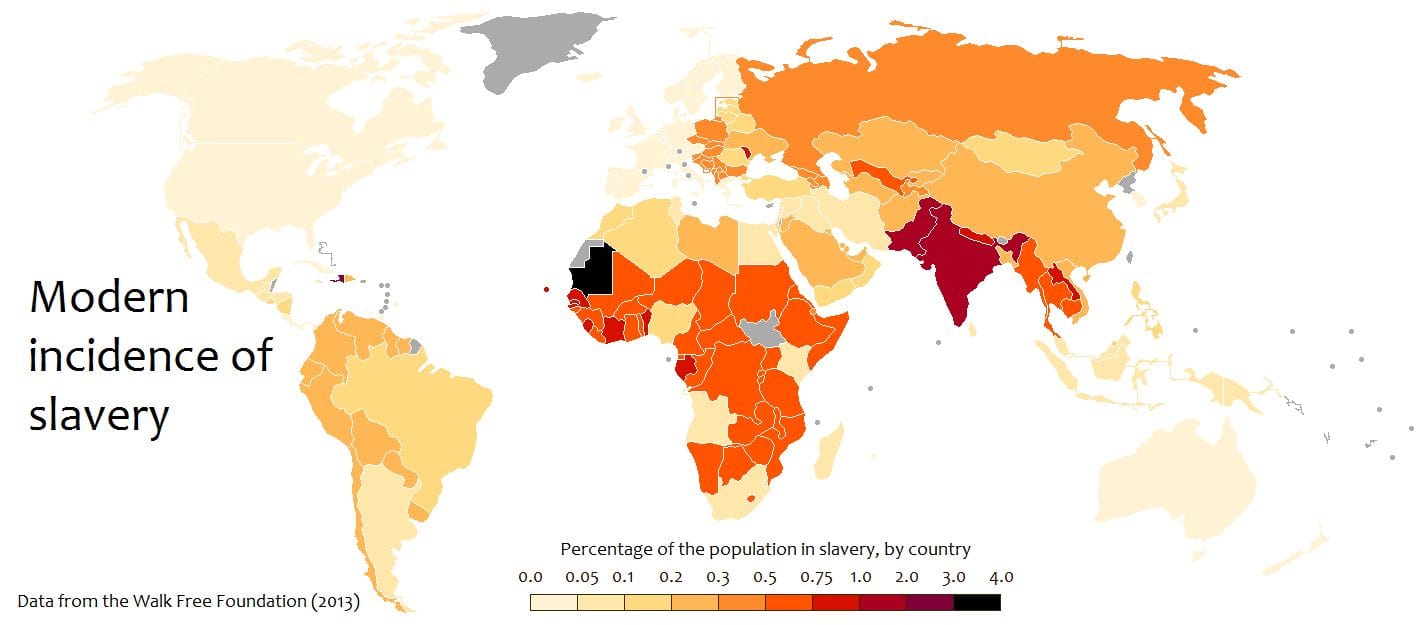Why Can U.S. Companies Commit Crimes Outside of our Borders?
This week I had the opportunity to present a journal article at a symposium on social responsibility.
While topics wildly varied, my own focused on the historical perspectives of capitalism -- and how many of the uglier aspects of capitalism have been with us since the very beginning.
Take for instance U.S. companies going abroad and committing acts which would be illegal if done inside the U.S.--including wage theft, bribery, child labor, usage of unsafe methods and/or chemicals, and many other actions that would be considered very serious matters if done domestically.
Why do we tolerate it?
Even more importantly, why has the western world tolerated it from the very beginnings of capitalism?
A lot of it came from a belief that financial tyranny of the new capitalist system was far better than the subjugating tyranny of the feudal and mercantilist economies.
John Maynard Keynes noted that this new system of capitalism (speaking historically) was seen as widely popular in the beginning among the common classes:
"It is better that a man should tyrannise over his bank balance than over his fellow-citizens; and whilst the former is sometimes denounced as being but a means to the latter, sometimes at least it is an alternative." -- General Theory
But therein was the flaw. It was an improvement to the mercantilism and feudal manor economies, but there was never a push to keep improving the system once it was in play.

The European powers quickly became masters of underdeveloped nations -- colonialism was the name of the game and exploiting every last resource for profit was its fullest of objectives.
But now, 239 years from both the Declaration of Independence and Adam Smith's seminal work, The Wealth of Nations, why are we still exploiting the third world?
While most of the industrialized world has effectively eradicated this problem, both wage and chattel slavery still exists throughout most of the world, with the industrialized nations being the ultimate oppressors.
The western coast of Africa has horrible slavery incidence, especially childhood slavery--and they are the leading producers of our daily luxuries of coffee, tea, and chocolate.
The Real Problem for the U.S. and Other Industrialized Nations
As the world continues to globalize -- at a faster pace each year -- the emerging markets and third world nations are demanding a larger share of the world's output.
In America, we consume roughly 40 percent of the world's output with about 5 percent of the world's population. Is there really any wonder why so many groups hate our way of life?
Capitalism is an economic system that works, but it's a system that needs a framework to work for the benefit of all.John Locke's
law of nature and Adam Smith's invisible hand, left to their own devices give us things like cheap chocolates produced by slave children, sweatshops producing Apple Watches, and cheap garments made by wage-slaves working 12 to 15 hours a day in hazardous conditions.
The EU has taken the lead on this, criminalizing things like food wasting among other measures abroad. The United States ought to follow suit--where we waste 141 trillion calories of food each year, an amount of food that could feed the world 10 times over.
But the real issue is, will we do enough to curb these problems before these nations start to 'fight back' over their share of the output?
More and more radicalized groups are seeing that they can stand toe-to-toe with us as insurgencies, which in the end disrupts our economy and makes us war weary at home.
In short, they are seeing it as a potentially viable way to combat the inequities.
Many political ilks hate the concept of America being the world's policeman, but when you are the world's top consumer, you have to protect your trade first.
But we also cannot stay in a state of indefinite warfare or we face the dilemmas of the Roman Empire, which had the peace of Rome at home and constant warfare in the outlying subjugated areas.
It shouldn't be that hard to take a simple stand -- the laws of business apply wherever you do business. But would we ever have politicians with the political courage to actually do this?
Probably not before it's too late.




